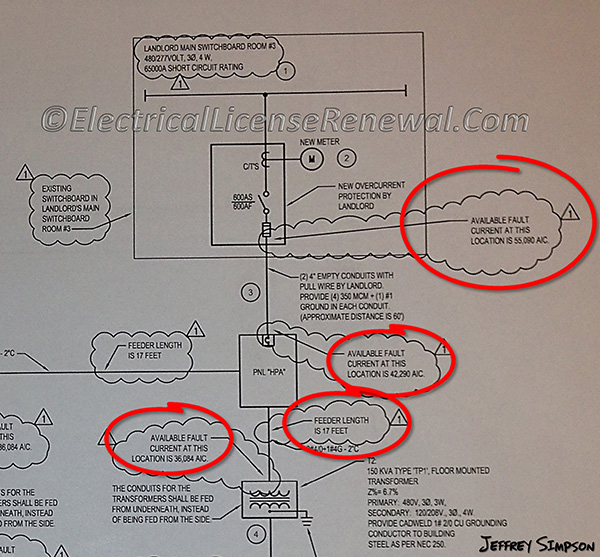Available Fault Current and Blueprints.

Not all electrical construction projects will have plans or blueprints. There will always be service work, replacement panelboards, adding new circuits and remodel work. For the jobs that use an approved set of plans, take note of specific information on the plans that the electrical engineer put there for a reason.
Many sets of plans are drawn poorly and leave many decisions up to the field electrician. A good set of plans will tell the electrician if a cable type wiring method is required or what type of raceways to use since using a cable or changing from a ferrous metal raceway to a PVC raceway will have an effect on the amount of available fault current (AFC) at a given point.
In addition, the plans should either show the math behind the AFC calculations or at least show the size and length of the service entrance conductors as well as each feeder downstream of the service.
The image shows a portion of a plan used on a construction project for a commercial building. The clouded notes were added after the plans examiner rejected the plan since the original version did not show the amount of AFC at each panelboard. The electrical engineer made changes to the plan and added the clouded notes at the request of the plans examiner.
If the notes were not added, it would be up to the electrician in the field to determine the amount of AFC at each panelboard in order to purchase circuit breakers with the correct interrupting rating (AIC rating) in compliance with NEC® 110.9.